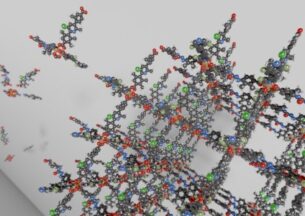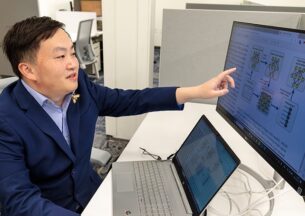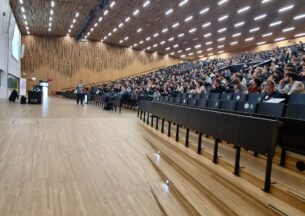UChicago-Led NSF “Expedition” Will Shorten Path to Practical Quantum Computing
University of Chicago computer scientists will lead a $10 million “expedition” into the burgeoning field of quantum computing, bringing applications of the nascent technology for computer science, physics, chemistry, and other fields at least a decade closer to practical use. The new, multi-institutional Enabling Practical-Scale Quantum Computing (EPiQC) project, funded by the National Science Foundation’s Expeditions in Computing program, will explore the co-design of hardware and software that helps scientists realize the potential of quantum computing more rapidly. Expeditions are the largest single-project investments made by the NSF and represent the most visionary and high-impact research in computer science.
The NSF announcement states: “By developing new algorithms, software and hardware designs tailored to key properties of quantum technologies capable of 100 to 1,000 quantum bits — where a quantum bit is the single unit of quantum information — this project will increase the efficiency of practical quantum computation and aid in transitioning quantum computing out of the laboratory and into practical use. “
The EPiQC Expedition is led by Computer Science Professor Fred Chong, who is joined by UChicago Profs. Diana Franklin and John Reppy of CS, and Prof. David Schuster of Physics. Partnering institutions include the Georgia Institute of Technology, Massachusetts Institute of Technology, Princeton University and University of California, Santa Barbara.
Rob Mitchum
University of Chicago
rmitchum@uchicago.edu
Office: 773-834-5336














